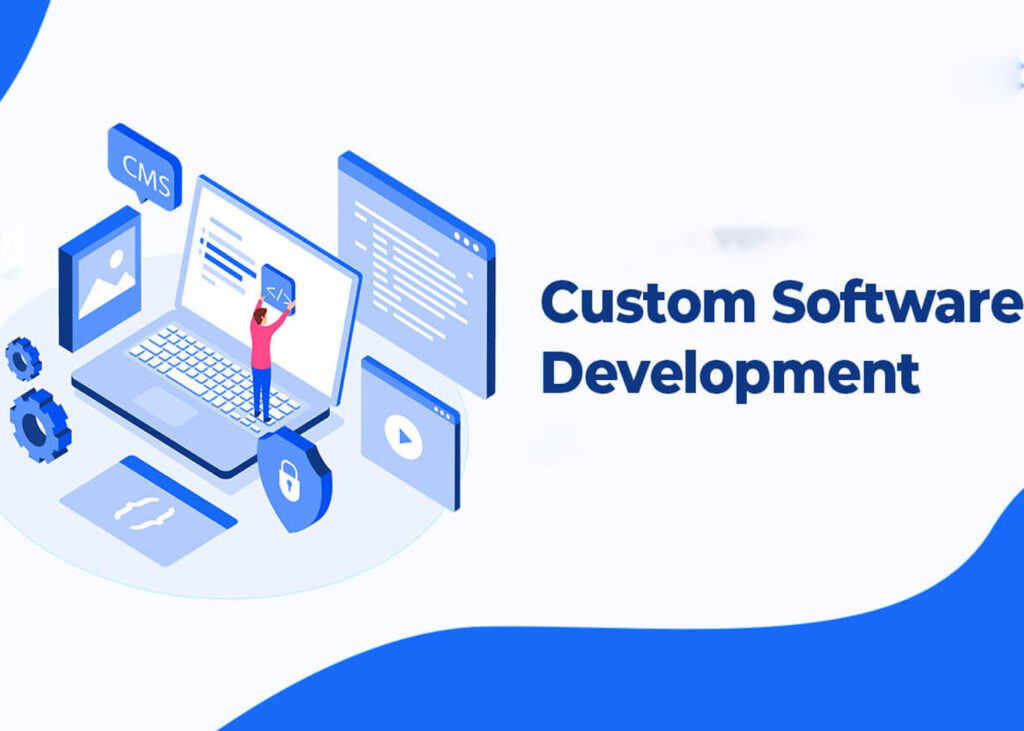Business automation has evolved from a luxury to an absolute necessity in today’s hyper-competitive marketplace. Yet too many organizations approach automation with a one-size-fits-all mentality, implementing generic solutions that barely scratch the surface of their operational potential. The real transformation happens when businesses recognize that their unique processes demand equally unique technological solutions.
The distinction between automation and true process optimization lies in customization. While standard automation tools can handle basic tasks, they often force businesses to conform to predetermined workflows that may not align with their strategic objectives or operational realities. Custom software development flips this equation, creating automation that serves your business model rather than constraining it.
The Automation Imperative
Every minute spent on repetitive, manual processes is a minute not invested in strategic thinking, innovation, or customer relationship building. This opportunity cost compounds daily across organizations, creating competitive disadvantages that accumulate over time. Smart leaders understand that automation isn’t just about efficiency; it’s about reallocating human capital to activities that drive genuine value creation.
Consider the financial implications. Manual processes don’t just consume time; they introduce errors, create bottlenecks, and limit scalability. When your best people are bogged down in routine tasks, you’re essentially paying premium wages for clerical work. Custom automation solutions address this fundamental misallocation of resources by handling routine operations with precision and consistency that human execution simply cannot match.
The strategic dimension extends beyond cost savings. Automated processes generate data, provide insights, and create opportunities for continuous improvement that manual operations rarely deliver. This intelligence becomes the foundation for better decision-making and more sophisticated business strategies.
Beyond Generic Solutions
Off-the-shelf automation tools serve a purpose, but they’re built for average businesses with average needs. If your organization operates like every other company in your industry, generic solutions might suffice. However, market leaders differentiate themselves through unique processes, proprietary methodologies, and innovative approaches that standard software cannot accommodate.
Custom software development recognizes that your competitive advantages often lie in how you do things differently. Whether it’s a unique customer onboarding process, proprietary quality control methods, or specialized data analysis techniques, these differentiators require automation solutions that mirror your specific operational DNA.
The limitation of generic automation becomes particularly apparent when dealing with complex, multi-step processes that involve decision trees, exception handling, or integration across multiple systems. Standard tools excel at simple, linear workflows but struggle with the nuanced decision-making that characterizes sophisticated business operations.
Process Intelligence and Adaptability
Effective automation requires deep understanding of not just what processes need to be automated, but how they actually function in practice. This insight goes beyond documented procedures to encompass the informal knowledge, exception handling, and adaptive behaviors that experienced employees bring to their roles.
Custom software development enables this level of process intelligence by incorporating business rules, decision logic, and adaptive capabilities that reflect real-world operational complexity. Instead of forcing processes to fit software limitations, custom solutions can accommodate the nuanced requirements that make your operations effective.
This adaptability becomes crucial as business conditions change. Custom automation solutions can be modified, enhanced, and scaled to meet evolving requirements without requiring complete system replacements or extensive workarounds. The agility to adapt automation strategies in response to market changes or operational insights provides sustained competitive advantage.
Integration as Operational Excellence
Modern businesses operate across multiple systems, platforms, and data sources. Effective automation requires seamless integration between these various components to create unified, efficient workflows. Generic automation tools often struggle with this integration challenge, creating information silos and workflow bottlenecks that limit overall effectiveness.
Custom software development addresses integration challenges by creating purpose-built connections between systems, ensuring that automated processes can access and utilize data from across your entire technological ecosystem. This integration capability transforms automation from isolated efficiency gains into comprehensive operational optimization.
The integration advantage extends to external systems as well. Custom solutions can connect with vendor systems, customer platforms, and partner networks in ways that create end-to-end automation across your entire value chain. This expanded scope of automation creates operational synergies that extend far beyond individual process improvements.
Data-Driven Process Optimization
Automation generates valuable data about process performance, bottlenecks, and optimization opportunities. However, this data is only valuable if you can access, analyze, and act upon it effectively. Custom automation solutions can be designed to capture exactly the data you need in formats that support your specific analytical requirements.
This data capability enables continuous process improvement through detailed performance analytics, trend identification, and predictive insights. Unlike generic solutions that provide limited reporting capabilities, custom automation can generate precisely the intelligence you need to make informed decisions about process optimization and resource allocation.
The analytical advantage compounds over time. As automated processes generate more data, your ability to identify patterns, predict outcomes, and optimize performance improves correspondingly. This creates a virtuous cycle where automation becomes increasingly sophisticated and valuable.
Scalability and Growth Accommodation
Business growth often strains existing processes and systems. Manual processes that worked effectively at smaller scales become bottlenecks as volume increases. Generic automation tools may provide some relief, but they often reach capacity limits or require expensive upgrades to accommodate growth.
Custom automation solutions can be designed from inception to scale efficiently with business growth. This scalability extends beyond simply handling higher volumes to encompassing new process variations, additional complexity, and expanded functional requirements that accompany organizational development.
Custom software development firms recognize that scalability isn’t just about handling more transactions; it’s about maintaining process quality, consistency, and effectiveness as business complexity increases. Custom solutions can anticipate growth patterns and build in the flexibility needed to accommodate expansion without performance degradation.
Risk Management and Compliance
Automated processes must operate within regulatory frameworks and organizational risk parameters. Generic automation tools often provide basic compliance features, but they may not address the specific regulatory requirements or risk management protocols that govern your industry or organization.
Custom automation solutions can incorporate detailed compliance checking, audit trails, and risk management protocols that align precisely with your regulatory environment. This capability becomes particularly important in highly regulated industries where compliance failures can result in significant financial penalties or operational restrictions.
The risk management advantage extends to operational risks as well. Custom solutions can include sophisticated exception handling, backup procedures, and recovery mechanisms that protect against process failures or unexpected conditions. This reliability is crucial when automation handles critical business processes.
Implementation Strategy and Change Management
Successful automation requires more than technical implementation; it demands careful change management and organizational alignment. Custom software development provides the flexibility to implement automation in phases, allowing for gradual adaptation and continuous refinement based on real-world experience.
This phased approach reduces implementation risk while enabling organizations to build internal expertise and confidence with automated processes. Rather than attempting wholesale process transformation, custom solutions can be designed to integrate smoothly with existing workflows while gradually expanding automation scope.
The strategic implementation of automation also requires consideration of human factors. Custom solutions can be designed to enhance rather than replace human expertise, creating hybrid processes that leverage both automated efficiency and human judgment. This approach often produces better results while maintaining organizational buy-in and process flexibility.
Measuring Automation Success
The value of automation extends beyond simple efficiency metrics to encompass strategic benefits like improved customer satisfaction, enhanced data quality, and increased operational agility. Custom automation solutions can be designed to capture and report on these broader value indicators, providing comprehensive visibility into automation impact.
This measurement capability enables continuous optimization and justifies continued investment in automation initiatives. Unlike generic solutions that provide limited visibility into process performance, custom automation can generate detailed analytics that support data-driven decision-making about process improvement and resource allocation.
The competitive landscape demands that organizations leverage every available advantage to maintain market position and drive growth. Custom software automation represents a powerful tool for achieving operational excellence while creating sustainable competitive advantages. Organizations that master this capability position themselves to thrive in increasingly automated and data-driven business environments.Devsinc offers the expertise and strategic perspective needed to develop custom automation solutions that deliver measurable business results while positioning your organization for sustained competitive advantage.


